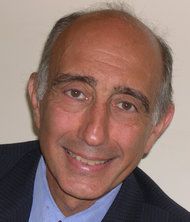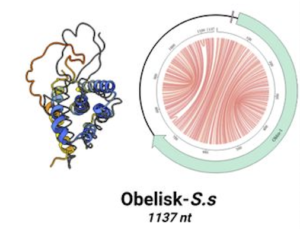According to Leo Galland, MD, an early pioneer in the now burgeoning field of functional medicine, conventional diagnostic thinking has become so rigid, so codified, and so fixated on the notion that diseases are discrete entities, that it is doing more harm than good.
Medical diagnosis is not an abstract activity; it is a goal-oriented, problem-solving process, and implicit in the treatments you give your patients are your definitions of the “problems” you are trying to help them solve.
 “If you get any kind of 3rd party reimbursement, you can only get paid if you put down the right ICD code (International Classification of Diseases) for “the disease,” and then the appropriate CPT code (Current Procedural Terminology) to match it. But this way of thinking is a staggering distortion of the truth about biology. Virtually everything wrong with American medicine can be traced to this: the dehumanization, the lack of personalization, the bureaucratization, the poor clinical outcomes, the way end of life decisions are made, all of it.”
“If you get any kind of 3rd party reimbursement, you can only get paid if you put down the right ICD code (International Classification of Diseases) for “the disease,” and then the appropriate CPT code (Current Procedural Terminology) to match it. But this way of thinking is a staggering distortion of the truth about biology. Virtually everything wrong with American medicine can be traced to this: the dehumanization, the lack of personalization, the bureaucratization, the poor clinical outcomes, the way end of life decisions are made, all of it.”
For the last 30 years, Dr. Galland—an internist who practices functional medicine in New York City—has been redefining the diagnostic process. Rather than focusing on diseases as discrete “entities,” he looks at symptom patterns in terms of their antecedents, triggers and mediators. He holds that physiological imbalances are at the root of most illnesses. The antecedents, triggers, and mediators of these imbalances fall into five general categories: Biochemical, Nutritional, Metabolic, Environmental and Psychosocial.
Dr. Galland, author of the popular books, Power Healing (1998) and The Fat Resistance Diet (2006), will be a featured speaker at the upcoming Integrative Healthcare Symposium, where he will take an in-depth look at the process he calls Patient Centered Diagnosis.
In an interview with Holistic Primary Care, Dr. Galland shared his perspective gained from more than 40 years of patient care experience. Here are highlights of our conversation.
HPC: Your diagnostic approach seems to be more in line with traditional Asian medical systems than with conventional allopathic thinking. Is that a fair assessment?
LG:Traditional (Asian) medicine is based on observations over thousands of years. Traditional systems view illness as result of imbalance or disharmony. The job of the healer is to identify the imbalances or disharmonies relevant to each patient and to help the individual correct them. That is what most so-called “alternative” practitioners do today.
What I worked out in the course of pursuing my own efforts to improve the way I cared for my patients was to find ways of using modern science to support a model of care that is essentially traditional. In this system, the disharmonies and imbalances that underlie each illness are the focus of diagnosis and treatment—not the specific disease label. But those imbalances and disharmonies are understood from a scientific perspective.
The main problem with conventional medicine as it has evolved over last 150 years is that it views illness as being the result of acquiring a “disease.” The basis of the diagnostic process in conventional medicine is the differential diagnosis, the process of trying to figure out which “disease” did this person get?
Although conventional medicine pretends to be based on science, this particular approach is not really so scientific. It takes a lot of short cuts, and makes a lot of assumptions, and doesn’t really reflect the connectedness we see in biology. Disease labeling is very incomplete in terms of describing the full scope of what’s going on with a patient. And, by the way, it also doesn’t work very well.
HPC: When did you begin to question conventional diagnostic thinking?
LG: It goes back to my residency days at Bellevue, 40 years ago. The ideas I formulated about 30 years ago, and which became part of the fundamentals in functional medicine 20 years ago, were all based on the realization that you can more completely describe illness in terms of its antecedents, triggers and mediators. These are concepts well supported by science, they are practical, and they allow integration of multiple domains very smoothly.
HPC: You’re quite critical of the ICD coding system, which is the conceptual backbone of the entire healthcare system. For most practitioners—and their patients—ICD codes are a fact of life. What is the main problem with ICD?
LG: It is not that the ICD categories are totally irrelevant. If you want to classify different types of lymphoma there is some value to using those categorizations. There’s value in, say, differentiating Crohn’s disease from IBS. But ICD thinking is horribly incomplete. There are studies that have looked at the difference between a “disease” versus an “illness.” Does defining a disease by a narrow ICD code adequately describe a patient’s Illness? No it doesn’t.
The science says that an ICD-based diagnosis is inadequate for really taking care of patients. What practice is telling us is that it’s a very wasteful system, and it is contributing to the exorbitant costs of medical care in the US.
This is especially relevant to primary care, because the system of ICD codes simply does not allow for good preventive care.
If you even think about prevention it needs to be specific to a certain disease. Yet we know that 80% of all morbidity and mortality could be prevented by broad and nonspecific changes in lifestyle, exercise, by stress management and by reduction of environmental toxins. There’s no real scientist that denies these facts. But the healthcare system, or rather the disease care system, is not set up to operate that way. It is totally organized around the notion that diseases are entities.
From a preventive medicine point of view, the ICD system is a total failure because it does not allow you to take the kinds of broad holistic measures that are really needed. Insurers will cover specific vaccines for specific infectious diseases, but the idea that you can actually make people healthy and reduce incidence of infectious disease via nutritional and lifestyle changes.there’s no possibility for that.
HPC: Do you see that changing in the future?
LG: Well, a lot of these concepts about imbalances and antecedents and triggers have become core concepts of fuctional medicine. Today, they may seem so obvious as to be almost self-evident, at least to people in holistic or functional medicine. So there has been some positive change in that direction. But it wasn’t always thus. And it is still not so in the trenches of conventional medicine.
I have to interact continuously with specialists who are locked into the ICD system. As soon as somebody is in the hospital, it’s all about the ICD codes. It is incredible to me how little has changed in 30 years. Technology has changed for sure, and the public has changed. But conventional medical thinking has not changed, and the bureaucratic pressures are making it worse.
You have to walk a very thin line sometimes. It is very hard if you’re licensed practitioner to operate outside the sphere of ICD, even if you’re outside of insurance. There are regulatory agencies checking up on what you’re doing, and there are a lot of ways in which there are limitations–external limitations—on your freedom to practice. Those are greater in some settings than others, but they’re there.
HPC: From a patient perspective, it seems a medical diagnosis has this strange way of gradually overtaking a person’s self-identity. People become almost wedded to their diagnoses. This seems unhealthy to me, but the system—and even the patient advocacy groups—seem to reinforce that identification.
LG: Well, it is not an easy thing. It is a minefield, actually! Being given a diagnostic label is very important to some patients, and understandably so, because it validates their experience. It tells them that what they’re experiencing is real and not just imaginary. In our society, unfortunately, the validation of the experience of illness or imbalance requires you have a medical label. So people are hunting around for those labels. They’re frustrated by how everyone else treats them, how people don’t take their experiences seriously.
We have to recognize that for some patients, a diagnosis is a validation. The label is needed for social, cultural, and administrative purposes. But it can solidify into a straitjacket, and then it becomes part of the problem. It is like a narcotic: if someone’s in severe pain, a narcotic is tremendous relief, but then it quickly becomes part of the problem.
HPC: One of your areas of expertise is in the care of people with chronic gut symptoms, and you were among the very first clinicians to start talking about the microbiome. These days microbiome research seems to throw one curveball after another into the conventional ideas about disease. What’s your view on that? How can clinicians use this new microbiome information in patient care?
LG: Right now, there are very few people that are doing anything useful with the information. The data are like a meteor shower. There’s so much stuff coming in so rapidly, it is hard to navigate through. There are people pretending that they have the answers, and I think real answers will emerge, but it’s going to take some time.
The most important principle from the microbiome research is on how the microbiome changes, how it is affected by food, antimicrobials, pro- and prebiotics. But the thing is, everybody responds in unique ways to those things. There are no one-shot probiotics or dietary approaches that will have the same effects in everybody. It’s not so simple.
Working therapeutically with an individual’s microbiome requires that you understand a lot of details about the individual as a whole. So, I think the microbiome thing really does lead you to a person-centered diagnostic approach.
The fascinating thing about the most recent research is the discovery that certain aspects of the microbiome are shaped by our genes…by the host’s genes. That’s a whole additional discussion—the interactions between the host genome, the microbial world, the diet, the family environment, and a whole range of things. The current composition of your microbiome is a reflection of all these antecedents.
There are some potentially important tests emerging from microbiome research, but they are not disease-specific tests, and they give very variable results.
HPC: Conventional medicine may be locked into ICD logic, but it seems like the public has really begun to think very differently.  Many people today are focused on health concerns that really don’t fit the coding system. Gluten sensitivity independent of Celiac disease is a good example. This seems to be a real biological phenomenon, yet it doesn’t fit into the coding scheme. It seems the marketplace has gotten way ahead of the medical world.
Many people today are focused on health concerns that really don’t fit the coding system. Gluten sensitivity independent of Celiac disease is a good example. This seems to be a real biological phenomenon, yet it doesn’t fit into the coding scheme. It seems the marketplace has gotten way ahead of the medical world.
LG: Frankly, what happens out there in the marketplace concerns me. To really help people in a consistent way requires a sort of intellectual structure that does not yet exist. The kind of structure that’s needed has to be one in which test data are incorporated into a holistic, integrated approach. One of the things that really worries me in the integrative medicine marketplace is excessive reliance on results of lab tests. They may be different tests than the ones used in conventional medicine. But you sometimes see the same unintelligent knee-jerk responses.
In conventional medicine, doctors are excessively focused on lipids and there’s this knee-jerk response of, “Oh, your cholesterol is high! We need to put you on a statin.” But I’ve seen the same type of thing among integrative practitioners. “You have an MTHFR C/T polymorphism….You have to be taking methylfolate!” Not necessarily. You have to look at all these bits of data in the context of the whole person.
With regard to gluten sensitivity, there are several types, and a lot of times the culprit is not gluten, it is fructan. When I’m evaluating a patient who says, “I can’t eat wheat. It makes me sick,” I try to dig more deeply. There are several mechanisms by which wheat can trigger GI symptoms. There are at least five distinct mechanisms that may produce what patients experience as “gluten sensitivity.” There might be patterns of abnormal fermentation not related to gluten at all. So again, it’s not as simple as the marketplace wants it to be.
HPC: I’m looking forward to your talk at Integrative Healthcare Symposium next month. Can you tell us a bit about what you’ll be presenting?
LG: Well, I’ll describe my personal journey toward working out the formulation of the Antecedents, Triggers & Mediators approach to diagnosis, and then describe the science behind it in some detail.
I am also going to share the stories of three patients with whom I used this diagnostic model rather than conventional model, and for whom it made a huge difference. All are women in their 30s—I call them The Three Graces. All had autoimmune diseases: two basically had the same disease—Lupus–but very different triggers. The third had Crohn’s and a vasculitis secondary to conventional therapy. Though she had a different disease label, she had the same trigger as the second Lupus patient.
All three of these patients are now remarkably better than they were after conventional treatment. One is totally cured and off meds for years. An interesting point is that between the two Lupus patients, a treatment approach that failed one woman worked very well for the second, because of the individual differences between them.
One of the things I have found to be really important in dealing with patients is that the individual details are tremendously important. You have to define who is this patient.
I spend about half my time with a patient trying to find out what the person was like before becoming ill. They’ll want to tell me about things that are really bothering them, and I tell them, “We’ll discuss that, but first we have to get there.” Then I’ll go through a full life health history. I want to understand what someone was like before this illness “happened.” You gain very important information from this inquiry.
END







